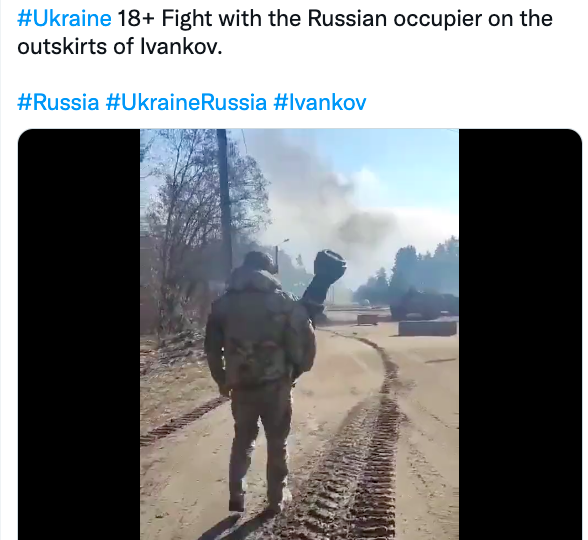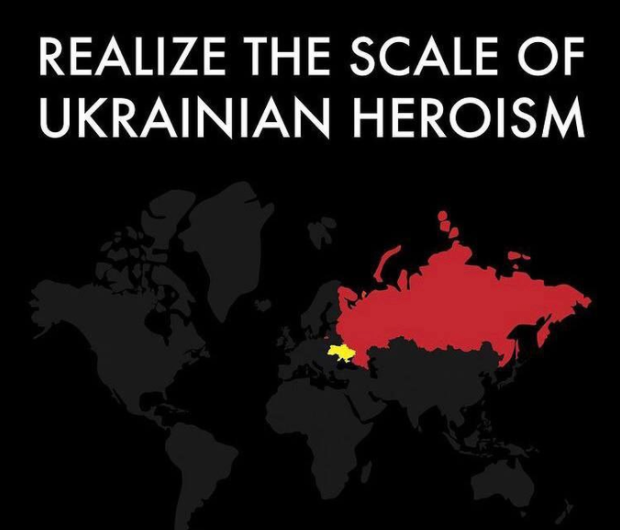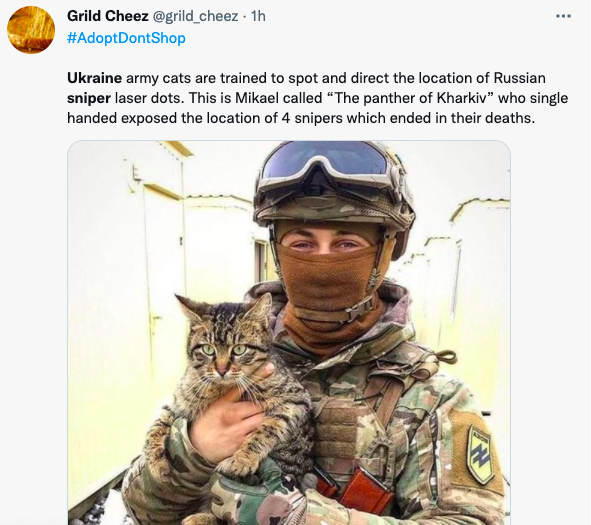How is it that Russia’s cyber-force, the alleged masters of disinformation and propaganda, lost the information war, while Ukraine has been so successful at spreading its message to the world?
Of course, being on the right side of history and not invading and bombing a country helps, but we’ve seen Russia (and Putin) spin events to their advantage before, or at least sow some discord and confuse public discourse. The well-established approach of maskirovka has been used to create deception and manipulate public discourse for decades, up until the Russian annexation of Crimea in 2014. So how is it that Putin is now losing so badly at his own game?
Let’s have a look at some of the reasons.
Preemption and pre-bunking
In previous years, Russian disinformation has largely been met with little initial resistance. And we’ve learned recently that attempting to debunk disinformation after it happens is often ineffective. So instead, both organized and ad-hoc actors moved to pre-bunk the disinformation.
This prebunking started going strong in January, when it became clear that Russia was amassing an invading force around Ukraine. In the US, the Biden administration became very vocal about this, and their voice was amplified by UK and EU intelligence. Russia denied any plans of an invasion and tried to dismiss this as a political squabble. They even ridiculed the idea that Russia would invade. But when it happened — it backfired spectacularly.
Official intelligence voices were also backed by Open-source intelligence (OSINT) sources. Russia tried to play the victim, but overwhelmingly, its reports were shut down quickly and factually — because the evidence was already gathered.
The combination of disseminated grassroots information, coupled with the fact that the US and UK governments were transparent about their intelligence warnings made it clear what was going on.
Satellite data
All of this was greatly facilitated that satellite data is now available with relative ease. Nowadays, it’s not just military satellites that can offer this type of data — civilian satellites can also offer valuable information. The satellites showed how Russian troops were amassing troops, how they were moving in, and pretty much all the things Russians tried to deny.
Journalists all around the world used Maxar satellite data to document the movement of Russian troops. It was kind of hard to deny what was going on when the eye from the sky was keeping a close watch.
Grassroots imagery
The data and intelligence reports and the bird’s eye view provided by satellites was coupled with grassroots documentation of the movements of Russian troops.
The reports flew in from residents, but also from journalists who braved the invasion and remained in place to document what was going on. The reports also documented not just the invasion itself, but its many logistical flaws as well. The world became aware that the Russian military faced fuel and food shortages and fuel-less tanks were sometimes simply abandoned.
It wasn’t just in English, either. The international journalistic community got together to produce a coherent message (or as coherent as possible given the circumstances) about what was going on.
Technology is not a friend of the Russian invasion either — everyone has a smartphone nowadays and can film what’s going on. Russian authorities have also been unable to disconnect Ukraine from the internet, which enabled the world to see what was going on through the lens of the Ukrainian people.
With the invasion documented at all levels, the world could have a clear view of what was going on.
Russia made mistakes
The flow of information was helped by the fact that Russia didn’t loudly use its propaganda machine as much as it could. According to reports, it seemed that Russian leaders were banking on a quick Blitzkrieg-type win where they could sweep things under the rug in the beginning, and then push their narrative. But the extension of the conflict meant that they wasted several days and already lost control of the narrative.
Russia also allowed Ukraine to showcase its military victories without pushing its own military successes — because yet again, Russia initially wanted to smooth the whole thing over as quickly as possible. While Ukraine showed its drones bombing Russian tanks and its people bravely holding off their invaders, Russia kept quiet. After all, Russian people at home aren’t even allowed to know there’s a war going on.

Russia also made mistakes in their attempts to sow disinformation, discrediting itself with a few small but blatant errors — this made Russian leaders seem even more disingenuous.

Civilian damage
Without a doubt, few things strike fear and empathy into people like bombing civilian buildings does. It’s something that everyone (hopefully) agrees should not happen. Unfortunately, there’s been plenty of evidence of Russian shelling of civilian buildings, including the bombing of a kindergarten and multiple residential buildings.

They say a picture is worth a thousand words, and seeing the people of Ukraine huddled up in subways sent a clear message: people like you and me are under attack.

Ukraine contrasts to Russia
Ukraine has also worked to push its side of the story — which you can hardly blame when you consider that Ukraine is currently faced with an existential threat. Their side of the story is very clear: they’re defending themselves against a foreign invasion. Meanwhile, Russia’s reason appears to be to crush Ukraine; it’s not hard to see why people support one of those things and not the other.

Ukrainians also pushed on the idea that unlike the invaders, they treat people humanely — even prisoners of war. They showed that they are humans just like everyone else and they have no intention of waging war when given an alternative.
Russia’s initial excuse for the invasion, that they were doing “denazification” in Ukraine, is also laughable — a lengthy list of historians and researchers signed a letter condemning this idea. The fact that Russia even bombed the Holocaust memorial in Kyiv made it even clearer that this was a flimsy excuse. Even for the Russian people at home, seeing heavily censored information, this must seem like a weak excuse at best.
Another stark contrast between Russian and Ukrainian forces is that while the latter are fighting for their very survival and the defense of their loved ones, it’s not exactly clear what exactly it is that Russian forces are fighting for. In fact, some soldiers were also confused: according to reliable reports, some Russian soldiers and their families initially thought they were doing drills — not an actual invasion.
Tales of heroism and martyrs

Ukraine is an underdog in any conflict with Russia but Ukrainians will not give up — and they’ve been pushing that message strongly since day one. Tales of regular people picking up arms despite all odds have circled the world, showing that Ukrainians are not afraid to fight till the bitter end.

In addition, Ukraine has also published regularly on defenders that sacrificed themselves for the greater good. Tales like a Ukrainian woman telling Russian soldiers to put seeds in their pockets so flowers will grow when they die in her country, a soldier sacrificing himself to blow up a bridge and slow down Russian forces, and most famously, encircled border guards on Snake Island who told an attacking warship: “Russian warship, go fuck yourself”
A valliant leader who understands media
When the invasion started, Volodymyr Zelenskyy wasn’t that well-known or popular outside the country. He wasn’t even that popular inside his country — for many Ukrainians, he was elected as the lesser evil. But he rose to the occasion impressively. With regular updates from the middle of events, using social media to communicate directly with people, and with staunch determination communicated in true 21st century style, Zelenskyy proved instrumental for Ukraine’s defense and its morale. He was the right man at the right place, and his communication was clear and effective.

Zelenskyy showed himself to be a man of the people, involved at the very center of the war zone — yet again, contrasting to what Putin was showing.
Jokes and memes
Russia failed to project a “good guy” image, it’s even failing to project a “strong guy” image. Despite its obviously superior firepower, despite its massive investments in the military, despite its gargantuan power — its invasion operation was plagued by numerous mishaps. Some of these mishaps would be outright funny if it weren’t such a tragic situation.
For instance, the scenes where Ukrainian farmers were dragging a tank across a field went viral, as did the encounter between a Ukrainian driver and a Russian tank that was out of fuel. The Ukrainian driver offered to tow the tank — back to Russia.

Memes have also been flowing, and more often than not the memes also took Ukraine’s side.

Propaganda
Lastly, Ukraine also deployed effective propaganda. The ‘Ghost of Kyiv’ fighter pilot is likely a myth, but it’s made the rounds and given hope to many Ukrainians. The ‘Panther of Kharkiv’ cat that detected Russian snipers is also quite possibly propaganda, but it gives people a good story. Let’s face it, if you can make it seem like you’ve got the cats on your side, you’ve already won a big part of the internet.

The bottom line
It’s always hard to assess what’s going on during a war. Reports are inconsistent, there’s a lot of misinformation, heck — it’s a war. In this case, Russia’s propaganda machine seems to have failed to effectively push its side of the story. From the top of the information chain to the bottom, from the intelligence reports to the grassroots videos and photos, everything points in one direction: Ukraine is winning the information war, while Russia is losing it. Its actions have received nigh-universal condemnation, and Putin is essentially a pariah on the global stage — while Zelenskyy has become one of the most popular leaders alive.
Will this matter for the actual war? It’s hard to say at this point. Information is vital during a war, but so is artillery — and Russia has a lot of artillery.









